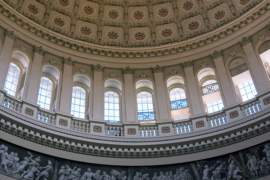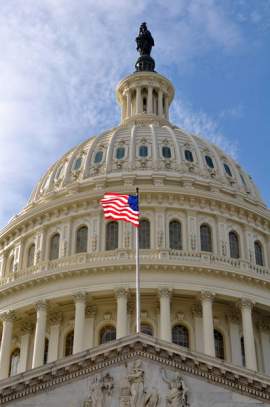
The Basics of Independent Agencies

What are Independent Agencies?
An independent agency or regulatory agency is a public authority or government agency responsible for exercising a specific form of autonomous authority over some area of human or supervisory activity. The key characteristic of independent agencies is that they are funded by outside organizations or private donors and are held separately, in regards to full regulation, from other branches of the United States federal government.
The majority of independent agencies focus in the area of administrative law—the field of law that studies implements and evaluates various regulations or rulemaking procedures, in addition to codifying and enforcing such rules and regulations for the benefit of the public at large. The justification in regards to the existence of independent agencies is realized through an evaluation regarding the complexity of certain regulatory and supervisory tasks that mandate a specific set of skills or expertise.
Furthermore, independent agencies are needed to increase productivity, efficiency and to mitigate corruption or unjust acts within the United States Federal Government because there is a need for the immediate implementation of public authority in certain areas or sectors; implementing such rules or regulations without the approval or renovation offered by independent agencies, would invariably invoke drawbacks of political interference.
In addition to rulemaking and enforcing various aspects of administrative law, some independent agencies that operate alongside the United States Federal Government will perform audits or investigations of larger governmental bodies.
What kind of Authority does an Independent Agency Possess?
Independent agencies, either are part of the executive branch of the United States federal government, or possess some form of statutory authority to perform their basic functions regarding oversight from the legislative branch. Although independent agencies are separately funded and not primarily regulated by a government department or body, their actions are generally open to legal review and subsequent punishment.
The majority of independent agencies in the United States are established to oversee and regulate specific industries to ensure that a transfer of goods or the creation of a new product is distributed to and implemented on society in the safest, most equitable and least troublesome way possible. Examples of independent agencies in the United States include the Food and Drug Administration and the Interstate Commerce Commission.
Basic functions of Independent Agencies:
To ensure that independent agencies increase efficiency and productivity for the larger governing body and to ensure such improvements are undertaken in such a way that does not promote injustice, these bodies will use the following mechanisms or courses of action:
Independent agencies will provide information and procedures regarding their decision-making process in the most transparent way possible
Various procedures of consultation and participation
They will explain their actions and follow principles that promote non-arbitrary and responsive decisions
Independent agencies will arrange for review of administrative decisions rendered by courts and other bodies



















